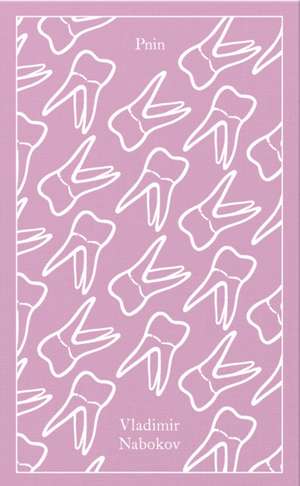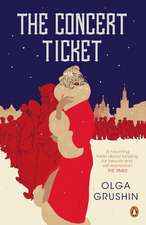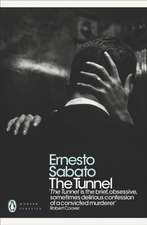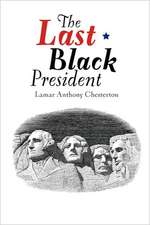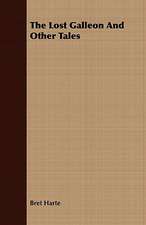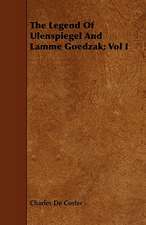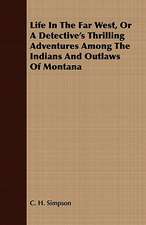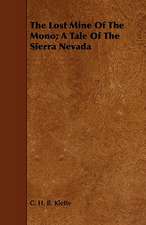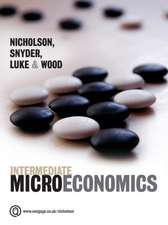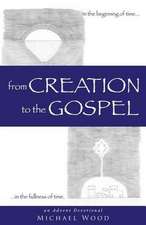Pnin: Penguin Clothbound Classics
Autor Vladimir Nabokoven Limba Engleză Hardback – 28 mar 2024
Wry, intelligent and moving, Pnin reveals the absurd and affecting story of one man in exile.
| Toate formatele și edițiile | Preț | Express |
|---|---|---|
| Paperback (2) | 51.69 lei 22-33 zile | +16.61 lei 6-12 zile |
| Penguin Books – 6 dec 2000 | 51.69 lei 22-33 zile | +16.61 lei 6-12 zile |
| Vintage Books USA – 31 aug 2005 | 87.37 lei 3-5 săpt. | +25.55 lei 6-12 zile |
| Hardback (3) | 69.63 lei 22-33 zile | |
| EVERYMAN – 17 mar 2004 | 69.63 lei 22-33 zile | |
| Penguin Books – 28 mar 2024 | 88.65 lei 22-33 zile | +29.49 lei 6-12 zile |
| Everyman's Library – 31 mar 2004 | 129.76 lei 3-5 săpt. |
Din seria Penguin Clothbound Classics
-
 Preț: 131.47 lei
Preț: 131.47 lei -
 Preț: 176.52 lei
Preț: 176.52 lei - 14%
 Preț: 95.28 lei
Preț: 95.28 lei - 13%
 Preț: 115.33 lei
Preț: 115.33 lei - 17%
 Preț: 78.03 lei
Preț: 78.03 lei - 15%
 Preț: 92.25 lei
Preț: 92.25 lei - 9%
 Preț: 957.22 lei
Preț: 957.22 lei -
 Preț: 175.42 lei
Preț: 175.42 lei - 22%
 Preț: 97.19 lei
Preț: 97.19 lei - 14%
 Preț: 95.14 lei
Preț: 95.14 lei - 15%
 Preț: 92.63 lei
Preț: 92.63 lei - 16%
 Preț: 117.82 lei
Preț: 117.82 lei -
 Preț: 123.66 lei
Preț: 123.66 lei - 17%
 Preț: 88.57 lei
Preț: 88.57 lei -
 Preț: 165.85 lei
Preț: 165.85 lei - 29%
 Preț: 87.71 lei
Preț: 87.71 lei - 13%
 Preț: 115.82 lei
Preț: 115.82 lei - 16%
 Preț: 91.08 lei
Preț: 91.08 lei - 16%
 Preț: 90.04 lei
Preț: 90.04 lei - 15%
 Preț: 92.72 lei
Preț: 92.72 lei - 16%
 Preț: 91.31 lei
Preț: 91.31 lei - 15%
 Preț: 92.62 lei
Preț: 92.62 lei - 15%
 Preț: 93.23 lei
Preț: 93.23 lei - 22%
 Preț: 131.37 lei
Preț: 131.37 lei - 15%
 Preț: 93.51 lei
Preț: 93.51 lei - 9%
 Preț: 773.43 lei
Preț: 773.43 lei - 16%
 Preț: 91.53 lei
Preț: 91.53 lei - 14%
 Preț: 94.58 lei
Preț: 94.58 lei -
 Preț: 123.24 lei
Preț: 123.24 lei - 14%
 Preț: 95.91 lei
Preț: 95.91 lei - 15%
 Preț: 92.18 lei
Preț: 92.18 lei - 26%
 Preț: 132.38 lei
Preț: 132.38 lei - 14%
 Preț: 105.08 lei
Preț: 105.08 lei - 16%
 Preț: 91.55 lei
Preț: 91.55 lei - 41%
 Preț: 103.30 lei
Preț: 103.30 lei - 19%
 Preț: 140.32 lei
Preț: 140.32 lei -
 Preț: 108.27 lei
Preț: 108.27 lei - 14%
 Preț: 94.74 lei
Preț: 94.74 lei - 14%
 Preț: 106.42 lei
Preț: 106.42 lei - 14%
 Preț: 94.40 lei
Preț: 94.40 lei -
 Preț: 133.25 lei
Preț: 133.25 lei -
 Preț: 109.66 lei
Preț: 109.66 lei -
 Preț: 108.01 lei
Preț: 108.01 lei - 14%
 Preț: 105.08 lei
Preț: 105.08 lei - 14%
 Preț: 105.98 lei
Preț: 105.98 lei - 25%
 Preț: 81.65 lei
Preț: 81.65 lei - 14%
 Preț: 95.72 lei
Preț: 95.72 lei -
 Preț: 111.20 lei
Preț: 111.20 lei -
 Preț: 161.37 lei
Preț: 161.37 lei - 16%
 Preț: 90.48 lei
Preț: 90.48 lei
Preț: 88.65 lei
Preț vechi: 106.86 lei
-17% Nou
Puncte Express: 133
Preț estimativ în valută:
16.97€ • 17.67$ • 14.08£
16.97€ • 17.67$ • 14.08£
Carte disponibilă
Livrare economică 24 ianuarie-04 februarie
Livrare express 08-14 ianuarie pentru 39.48 lei
Preluare comenzi: 021 569.72.76
Specificații
ISBN-13: 9780241638422
ISBN-10: 0241638429
Pagini: 168
Dimensiuni: 137 x 205 x 20 mm
Greutate: 0.27 kg
Editura: Penguin Books
Colecția Penguin Clothbound Classics
Seria Penguin Clothbound Classics
ISBN-10: 0241638429
Pagini: 168
Dimensiuni: 137 x 205 x 20 mm
Greutate: 0.27 kg
Editura: Penguin Books
Colecția Penguin Clothbound Classics
Seria Penguin Clothbound Classics
Notă biografică
Vladimir Vladimirovich Nabokov was born on April 23, 1899, in St. Petersburg, Russia. The Nabokovs were known for their high culture and commitment to public service, and the elder Nabokov was an outspoken opponent of antisemitism and one of the leaders of the opposition party, the Kadets. In 1919, following the Bolshevik revolution, he took his family into exile. Four years later he was shot and killed at a political rally in Berlin while trying to shield the speaker from right-wing assassins.
The Nabokov household was trilingual, and as a child Nabokov was already reading Wells, Poe, Browning, Keats, Flaubert, Verlaine, Rimbaud, Tolstoy, and Chekhov, alongside the popular entertainments of Sir Arthur Conan Doyle and Jules Verne. As a young man, he studied Slavic and romance languages at Trinity College, Cambridge, taking his honors degree in 1922. For the next eighteen years he lived in Berlin and Paris, writing prolifically in Russian under the pseudonym Sirin and supporting himself through translations, lessons in English and tennis, and by composing the first crossword puzzles in Russian. In 1925 he married Vera Slonim, with whom he had one child, a son, Dmitri.
Having already fled Russia and Germany, Nabokov became a refugee once more in 1940, when he was forced to leave France for the United States. There he taught at Wellesley, Harvard, and Cornell. He also gave up writing in Russian and began composing fiction in English. In his afterword to Lolita he claimed: "My private tragedy, which cannot, and indeed should not, be anybody's concern, is that I had to abandon my natural idiom, my untrammeled, rich, and infinitely docile Russian tongue for a second-rate brand of English, devoid of any of those apparatuses–the baffling mirror, the black velvet backdrop, the implied associations and traditions–which the native illusionist, frac-tails flying, can magically use to transcend the heritage in his own way." [p. 317] Yet Nabokov's American period saw the creation of what are arguably his greatest works, Bend Sinister (1947), Lolita (1955), Pnin (1957), and Pale Fire (1962), as well as the translation of his earlier Russian novels into English. He also undertook English translations of works by Lermontov and Pushkin and wrote several books of criticism. Vladimir Nabokov died in Montreux, Switzerland, in 1977.
The Nabokov household was trilingual, and as a child Nabokov was already reading Wells, Poe, Browning, Keats, Flaubert, Verlaine, Rimbaud, Tolstoy, and Chekhov, alongside the popular entertainments of Sir Arthur Conan Doyle and Jules Verne. As a young man, he studied Slavic and romance languages at Trinity College, Cambridge, taking his honors degree in 1922. For the next eighteen years he lived in Berlin and Paris, writing prolifically in Russian under the pseudonym Sirin and supporting himself through translations, lessons in English and tennis, and by composing the first crossword puzzles in Russian. In 1925 he married Vera Slonim, with whom he had one child, a son, Dmitri.
Having already fled Russia and Germany, Nabokov became a refugee once more in 1940, when he was forced to leave France for the United States. There he taught at Wellesley, Harvard, and Cornell. He also gave up writing in Russian and began composing fiction in English. In his afterword to Lolita he claimed: "My private tragedy, which cannot, and indeed should not, be anybody's concern, is that I had to abandon my natural idiom, my untrammeled, rich, and infinitely docile Russian tongue for a second-rate brand of English, devoid of any of those apparatuses–the baffling mirror, the black velvet backdrop, the implied associations and traditions–which the native illusionist, frac-tails flying, can magically use to transcend the heritage in his own way." [p. 317] Yet Nabokov's American period saw the creation of what are arguably his greatest works, Bend Sinister (1947), Lolita (1955), Pnin (1957), and Pale Fire (1962), as well as the translation of his earlier Russian novels into English. He also undertook English translations of works by Lermontov and Pushkin and wrote several books of criticism. Vladimir Nabokov died in Montreux, Switzerland, in 1977.
Recenzii
“Hilariously funny and of a sadness.” –Graham Greene
“Pnin’s vita, though its essence is saintliness, is yet a work of brilliant magic and fabulous laughter.” –The New Republic
“Fun and satire are just the beginning of the rewards of this novel. Generous, bewildered Pnin, that most kindly and impractical of men, wins our affection and respect.” –Chicago Tribune
“Nabokov can move you to laughter in the way the masters can–to laughter that is near to tears.” –The Guardian
“Pnin’s vita, though its essence is saintliness, is yet a work of brilliant magic and fabulous laughter.” –The New Republic
“Fun and satire are just the beginning of the rewards of this novel. Generous, bewildered Pnin, that most kindly and impractical of men, wins our affection and respect.” –Chicago Tribune
“Nabokov can move you to laughter in the way the masters can–to laughter that is near to tears.” –The Guardian
Descriere
Descriere de la o altă ediție sau format:
One of the best-loved of Nabokov’s novels, Pnin features his funniest and most heart-rending character. Professor Timofey Pnin is a haplessly disoriented Russian émigré precariously employed on an American college campus in the 1950s. Pnin struggles to maintain his dignity through a series of comic and sad misunder-standings, all the while falling victim both to subtle academic conspiracies and to the manipulations of a deliberately unreliable narrator.
One of the best-loved of Nabokov’s novels, Pnin features his funniest and most heart-rending character. Professor Timofey Pnin is a haplessly disoriented Russian émigré precariously employed on an American college campus in the 1950s. Pnin struggles to maintain his dignity through a series of comic and sad misunder-standings, all the while falling victim both to subtle academic conspiracies and to the manipulations of a deliberately unreliable narrator.
